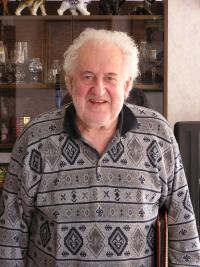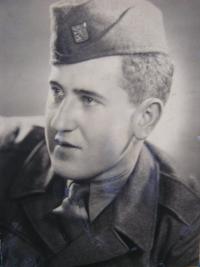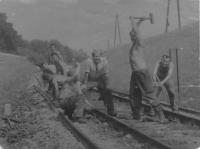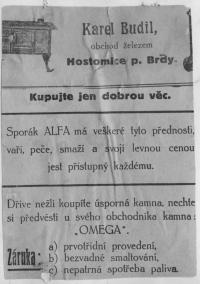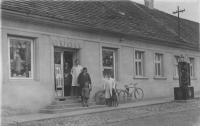„On the 1st May we were forced to take part in a manifestation and immediately after it ended we had to start mining in the pit of president Beneš.”

Stáhnout obrázek
Karel Budil was born on February 9th in 1929 in Prague. He grew up in Hostimice pod Brdy, where his father carried on a general store. After the communist coup in February1948 the whole family was persecuted and all its property was confiscated step by step. Because of his origin Karel Budil was called into the military service with the PTP (Auxillry Technical Batalion) in 1950. He was placed in different mines in Ostrava, Karviná and Orlová. At the beginning he worked as an unskilled laborer, later as a miner. From the PTP he was released in November 1953, but first he had to sign an enforced contract for another year in the mining industry. After the contract expired he started to work in the company Arma. He worked in the army canteen and later at the military airport Milovice. Finally he found a job in Prague in the food trade. He retired in 1983.
